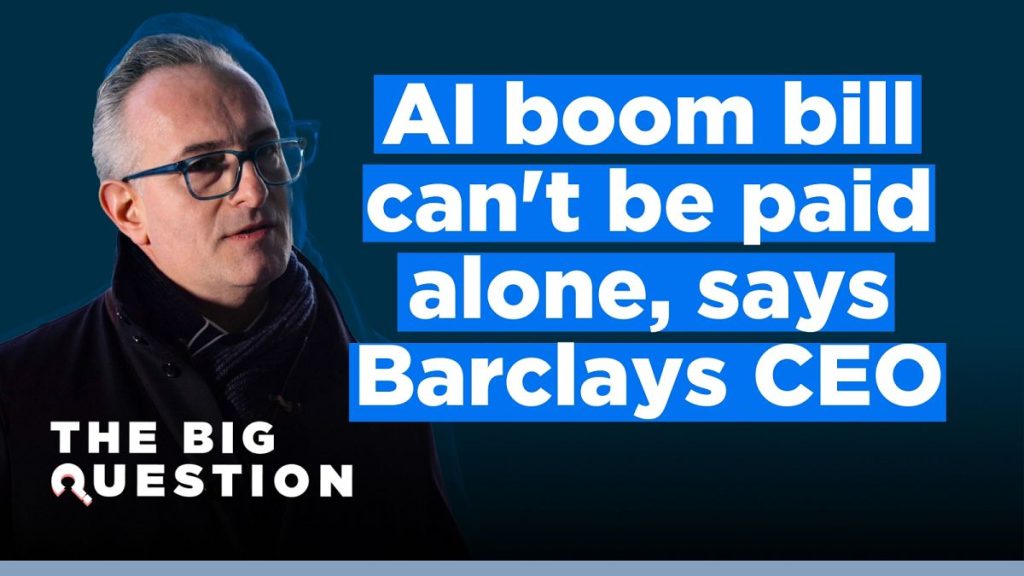In a conversation with Euronews at the World Economic Forum in Davos, Francesco Ceccato, CEO of Barclays Europe, addressed the crucial topic of financing the burgeoning AI revolution. Ceccato emphasized the immense scale of investment required for AI infrastructure and energy, asserting that neither individual companies nor governments possess the capacity to shoulder this burden alone. This observation came on the heels of a significant US government announcement of a collaborative investment initiative with major tech players like OpenAI, Oracle, and Softbank, earmarking an initial $100 billion for AI development, with the potential to escalate to $500 billion over the subsequent four years. This underscores the growing recognition of the substantial financial commitment needed to propel the AI sector forward.
Ceccato linked this discussion to Barclays’ recent AI report, building upon their previous year’s findings on AI’s potential to enhance productivity, particularly in the context of aging populations. The current report focuses on the often-overlooked aspect of energy consumption required for AI infrastructure. Ceccato highlighted the immense power demands of AI applications, referencing Elon Musk’s investment in a supercomputer boasting 200,000 GPUs, which translates to a colossal energy footprint. The report projections align with those of the International Energy Agency (IEA), anticipating a dramatic increase in global energy demand for data centers—the hubs of AI computation—reaching 1,000 terawatt-hours by 2030. This emphasizes the critical interdependence between AI advancements and energy infrastructure development.
Addressing the question of Europe’s preparedness for this financial commitment, Ceccato stressed the urgency for Europe to prioritize AI infrastructure investments. However, he acknowledged the fiscal constraints faced by many European governments, highlighting the vital role of capital markets in bridging the funding gap. Ceccato pointed to the fragmented nature of European capital markets as a significant obstacle, advocating for swift reforms to facilitate the mobilization of necessary capital. This reform, he argued, is essential for Europe to effectively participate in and benefit from the global AI race.
Beyond the immediate financial considerations, Ceccato also touched upon the broader context of sustainability and Barclays’ strategic commitment to the energy transition. Emphasizing the gradual nature of this transition, he described it as “a dial, not a switch.” Barclays’ strategy, he explained, is threefold: continuing to support clients in their transition journeys through advisory services and financing, maintaining their commitment to providing $1 trillion in sustainable and transition finance by 2030, and fostering innovation by supporting early-stage clean tech companies. This multifaceted approach acknowledges the complex interplay between technological advancement, economic development, and environmental responsibility.
The discussion also underscored the necessity of a collaborative approach involving both public and private sectors to navigate the multifaceted challenges and opportunities presented by the AI revolution. The sheer scale of investment required necessitates innovative financing models and cross-sector partnerships. Moreover, the inextricable link between AI and energy consumption necessitates concurrent development of sustainable energy solutions to ensure that the AI boom does not exacerbate existing environmental challenges.
In conclusion, Ceccato’s insights paint a clear picture of the substantial financial hurdles and infrastructural requirements associated with unlocking the full potential of AI. While the promise of AI to transform industries and boost productivity is undeniable, realizing this potential demands a collective and strategic approach to financing, energy management, and sustainable development. The conversation serves as a call to action for policymakers, businesses, and investors to collaborate on building a robust and sustainable ecosystem for AI to thrive, ensuring that its benefits are broadly shared and its environmental impact is thoughtfully managed.














